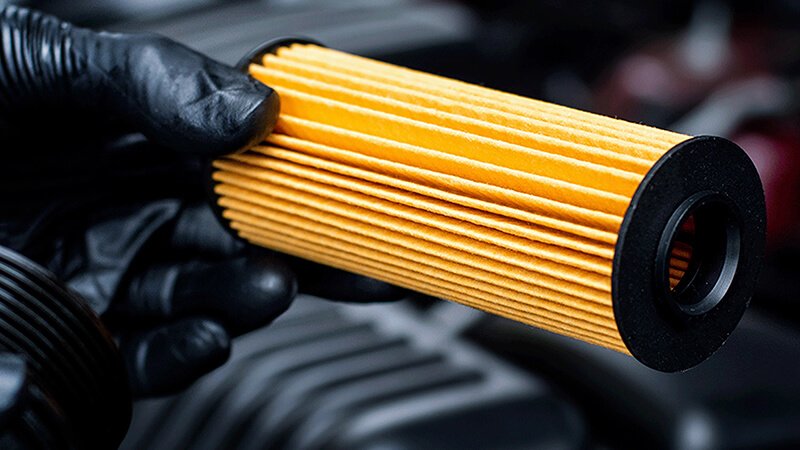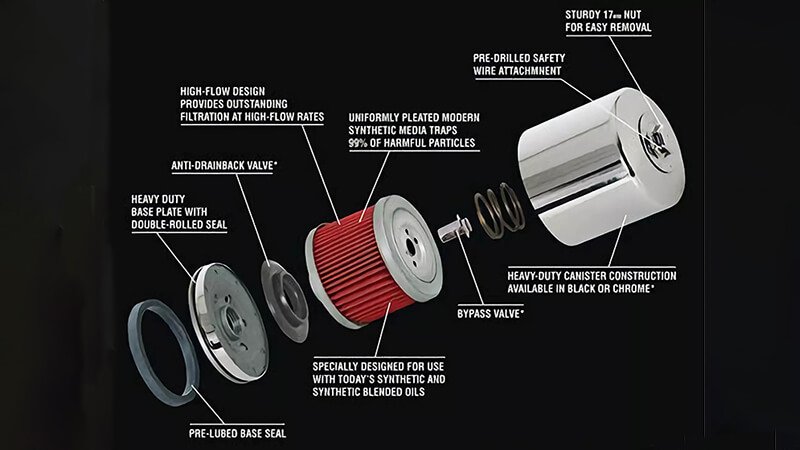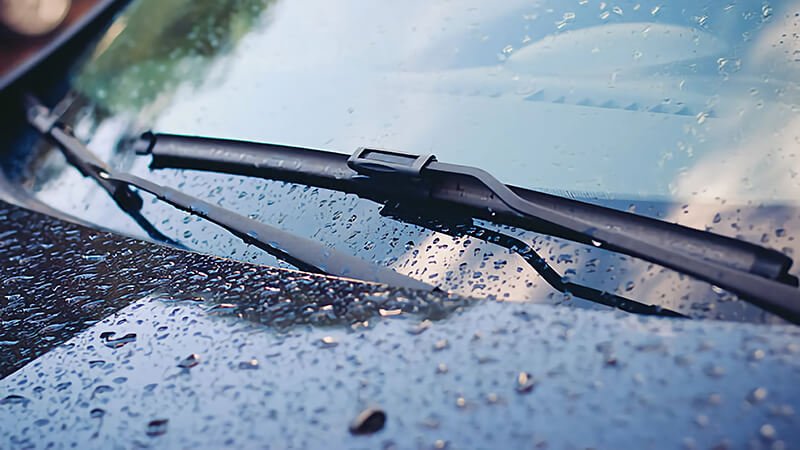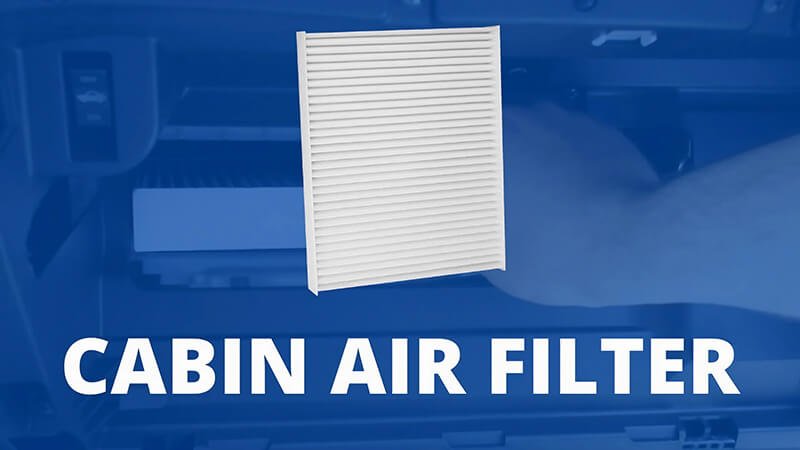Many procurement managers ignore small dents on oil filters, thinking it’s just an appearance issue. This mindset can quickly turn into a painful after-sales nightmare with warranty claims and customer complaints.
A dented oil filter is bad because it distorts the internal structure and disrupts the oil flow, which can lead to pressure drop and reduced filtration efficiency. This increases wear on the engine and results in noise or even long-term damage.
When distributors complain about “sudden” pressure drops or noise after an oil filter replacement, in many situations they are looking at a dented filter issue. It may look small, but inside, the deformation can easily compromise the entire filtration system and damage the engine over time. Let me explain this step by step.

Is it okay if I dented my oil filter?
Many buyers assume the steel casing of the oil filter is strong enough to survive small impacts during transportation or installation. That assumption sounds reasonable at first. In reality, even a tiny external dent can bend the internal filter media and reduce the space for oil to circulate.
It is not okay to use a dented oil filter, because the dent transfers to the internal structure and reduces filtration surface. This restricts oil flow, lowers pressure and increases stress on the engine.
When I first started working with oil filter1 buyers, I noticed most complaints only appeared after 2–3 weeks of use. The dent seemed insignificant at the warehouse, but as oil pressure increased, it created turbulence and pushed small particles into the bypass valve. The end result was clogging and pressure fluctuation.
Why a dent blocks the filter capacity
| Issue | How it affects the filter |
|---|---|
| Bent internal media | Reduces effective filtration area |
| Changed flow direction | Increases turbulence inside the filter |
| Higher bypass valve activation | Allows unfiltered oil into the engine |
| Irregular pressure | Leads to engine noise and increased wear |
Once the internal paper is bent, it never goes back to the original shape. Our oil filters at Runex Auto2 are designed with reinforced internal cages that resist deformation, but even with that, a dent on the outside is still a sign the product has been compromised.
How it hurts your engine over time
Even with a small dent, the flow becomes uneven. Pressure builds up in one side of the filter, which forces the bypass valve to open earlier than usual. That means the engine starts receiving unfiltered oil. After a few weeks of running on partially filtered oil, you start hearing ticking noise and customers complain about “rough idle.” All of this can be avoided if damaged filters are rejected before installation.

Can I drive with a damaged oil filter?
Some drivers assume they can still finish a trip if the filter is only slightly damaged. I’ve talked to buyers who decided to “use up” dented stock to avoid losses. This is a risky move, because even in a short trip, a damaged oil filter can let contaminants skip filtration completely.
You should not drive with a damaged oil filter because it cannot maintain proper pressure or protect the engine from contaminants. Even a short drive can cause unfiltered oil to circulate, accelerating internal wear.
We had a UK distributor who did exactly that—they decided to use slightly dented filters for local fleet customers to avoid scrapping. Within a month, the fleet reported unusual engine noise and decreased performance. The distributor ended up paying for replacements and lost the contract.
What happens when you drive with a damaged filter3
| Situation | Result |
|---|---|
| Unfiltered oil circulation | Increased engine wear4 |
| Pressure fluctuations | Trigger dashboard warnings |
| Bypass valve opens early | Contaminated oil bypasses filtration |
| Prolonged use | Long-term damage to engine components |
At Runex Auto, we advise all partners to reject any unit with visible deformation. The cost of one filter is nothing compared to the cost of a damaged engine. It’s never worth the risk, even for a short drive.

Can I use a dented fuel filter?
Some people ask if dents are less critical on fuel filters because fuel is cleaner than oil. That is another widespread misconception. Fuel filters have a very fine filtration level (10–15 microns), and even a small dent can pull the filter media away from its support cage, creating a direct bypass point.
You should not use a dented fuel filter, because it introduces unfiltered fuel into the system, which can damage injectors and reduce combustion efficiency.
I often tell distributors that fuel systems5 are even more sensitive than oil systems. Once the filter media deforms, it cannot hold the pressure evenly and will create a small internal gap. Fuel will always follow the path of least resistance and will flow through that gap instead of the filter paper.
Why a dented fuel filter is dangerous
| Component | Effect of dent |
|---|---|
| Filter media | Breaks contact with support cage |
| Flow path | Forms a shortcut around the media |
| Injector tips | Get clogged with fine particles |
| Combustion process | Becomes incomplete and inefficient |
Additional risks with modern systems
Modern engines use high-pressure fuel injection. Even tiny particles can disturb the spray pattern and lead to misfire. We design Runex Auto6 fuel filters with reinforced structure, but if the outer casing is dented, the inner media still shifts under pressure. In this case, the safest approach is to replace immediately. Using a dented unit is basically letting abrasive particles go straight into your combustion chamber.

How long can you go without replacing an oil filter?
Some customers ask if they can extend service intervals and skip one oil filter replacement. This might sound like a way to save money. In real-world use, it leads to sludge buildup, premature wear and higher heat inside the engine.
You should never skip an oil filter replacement. The maximum interval should follow the manufacturer’s recommendation (usually 5,000–10,000 miles). Extending beyond that increases the risk of clogged media and unfiltered oil circulation.
I had one distributor in Eastern Europe who allowed a client to extend oil filter7 use to 15,000 miles. It went well for the first few cycles. On the fourth cycle, the filters started to clog early because of dusty driving conditions. This caused high oil pressure and forced bypass valves to open repeatedly. The engines experienced significant wear, and the client switched suppliers.
Why replacement timing matters
| Factor | Consequence if ignored |
|---|---|
| Dust and debris intake | Clogs the filter faster |
| Sludge buildup | Blocks oil paths |
| Bypass valve activation | Allows unfiltered oil in |
| High oil temperature | Reduces lubricant efficiency |
Recommended replacement strategy
The safest strategy is to combine mileage with operating environment. Heavy-duty and dusty environments require shorter intervals. At Runex Auto, our oil filters are tested up to 10,000 miles under normal conditions. But if the vehicle is used off-road or in dusty areas, we recommend replacing at 5,000–6,000 miles. This prevents sludge buildup and keeps the filtration8 level stable from start to finish.

Conclusion
A dented or damaged oil filter 9 is never just a cosmetic issue. Even a small deformation can distort the internal media, reduce flow, and force unfiltered oil into the engine. Driving with a damaged filter increases wear and risks long-term damage. The same applies to fuel filters, which are even more sensitive. The cost of replacing a damaged filter is insignificant compared to the cost of repairing an engine. As a supplier, I always advise our distributor partners to reject any filter with visible damage and replace filters within the recommended intervals.
-
Discover top-rated oil filters that minimize engine wear and noise by ensuring optimal filtration and pressure regulation. ↩
-
Discover why Runex Auto's reinforced internal cages make their oil filters more reliable and resistant to deformation, ensuring better engine protection. ↩
-
Understanding the risks of a damaged filter can help prevent costly engine repairs and ensure vehicle longevity. ↩
-
Exploring the impact of engine wear can provide insights into maintenance practices that enhance vehicle efficiency and lifespan. ↩
-
Understanding the nuances between fuel and oil systems can enhance your knowledge of engine performance and maintenance. ↩
-
Discover why Runex Auto fuel filters are designed to withstand high pressure and prevent engine damage, ensuring optimal performance and safety. ↩
-
Understanding oil filter replacement practices can help maintain engine health and performance. ↩
-
Understanding stable filtration helps prevent engine wear and ensures optimal performance, especially in challenging driving conditions. ↩
-
Finding the best auto oil filter from Runex Auto. ↩













